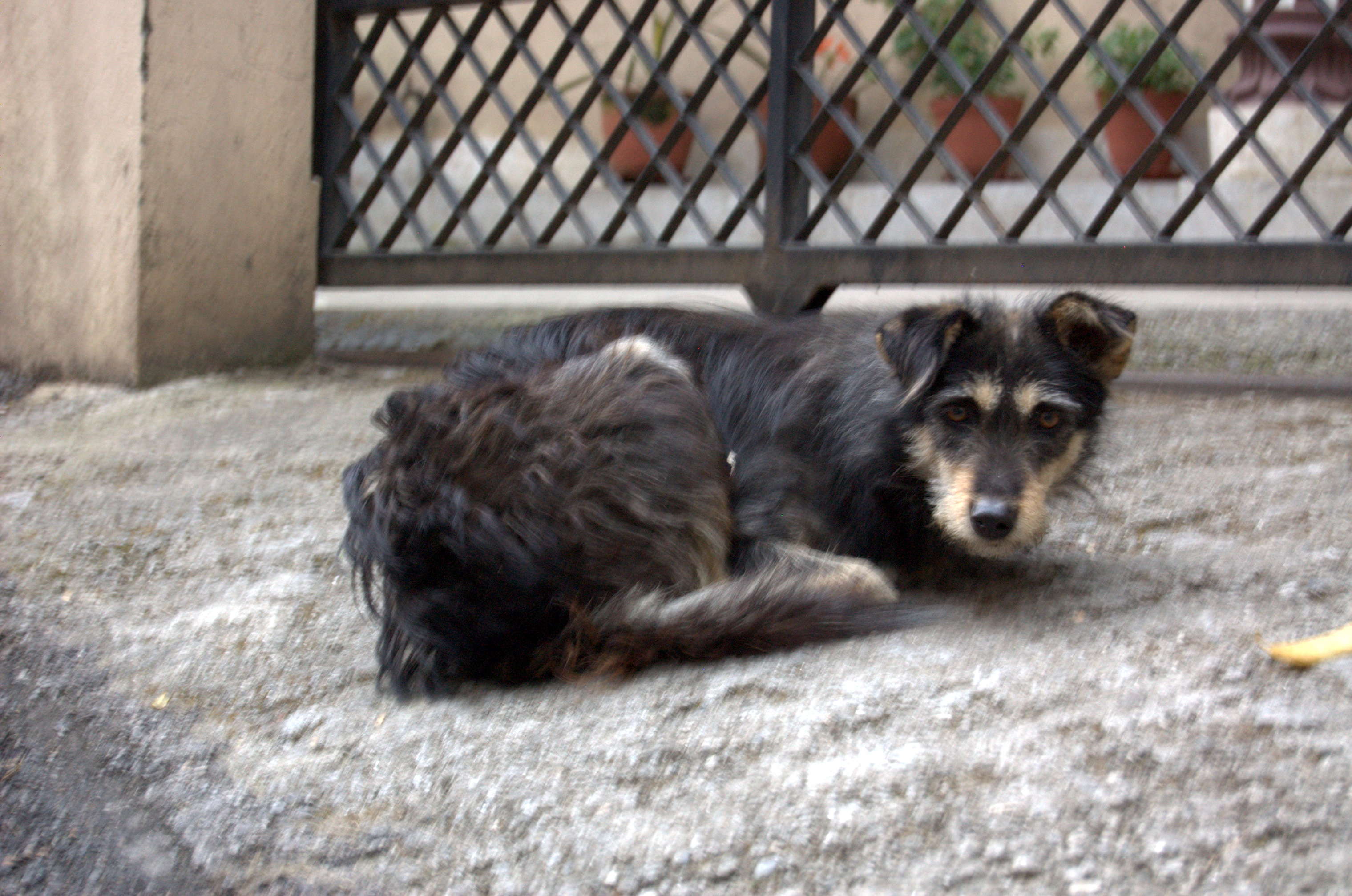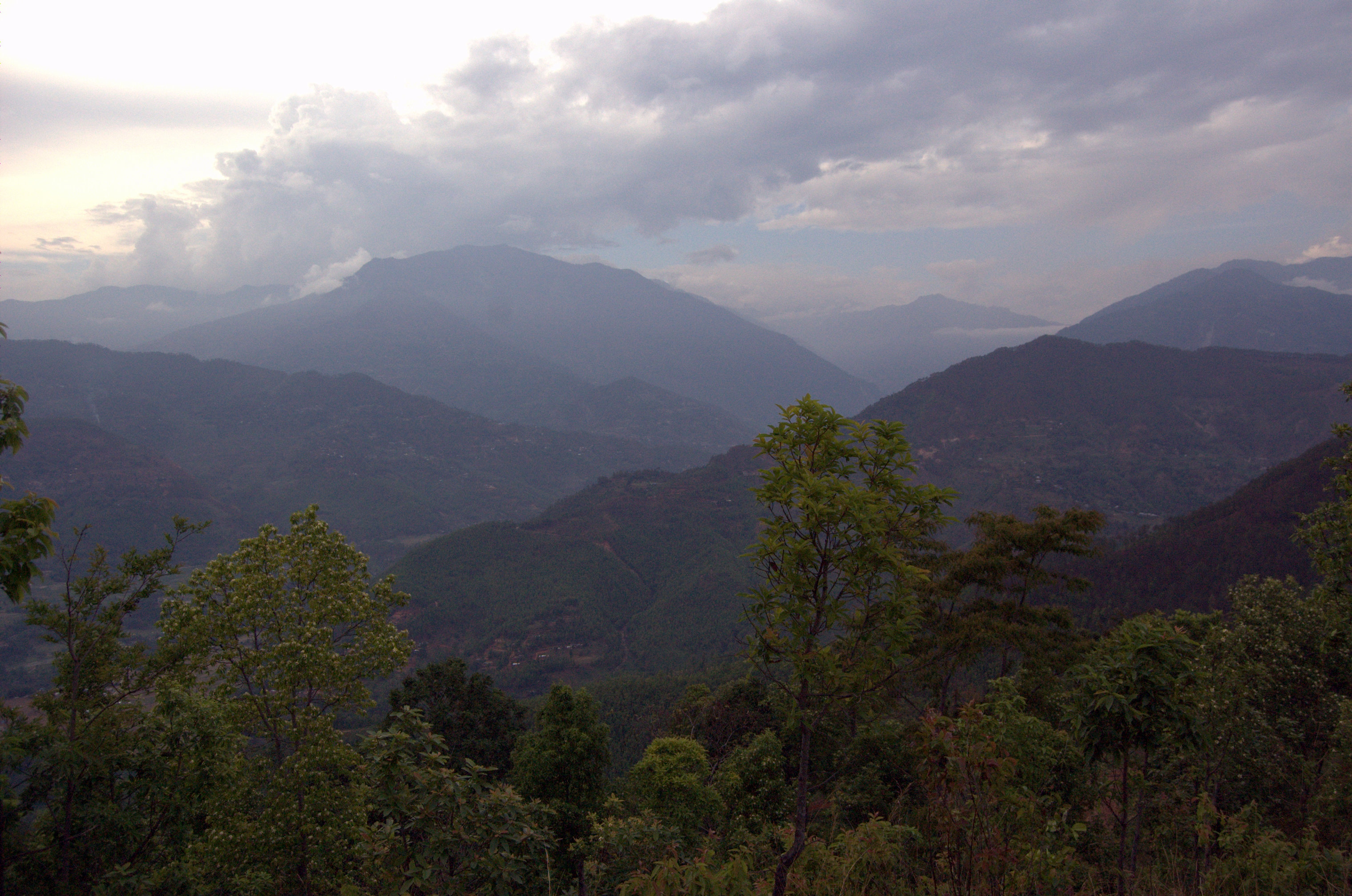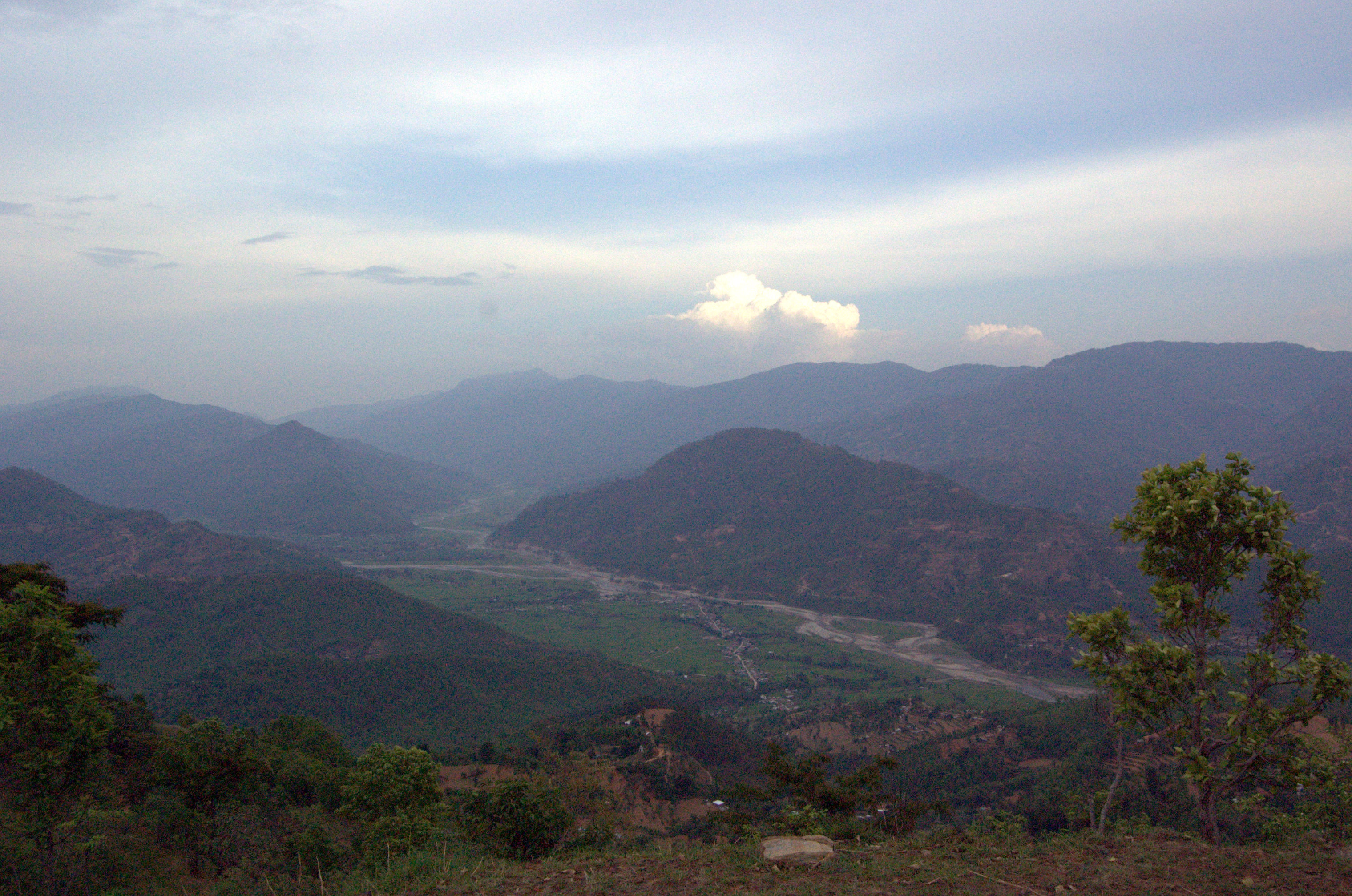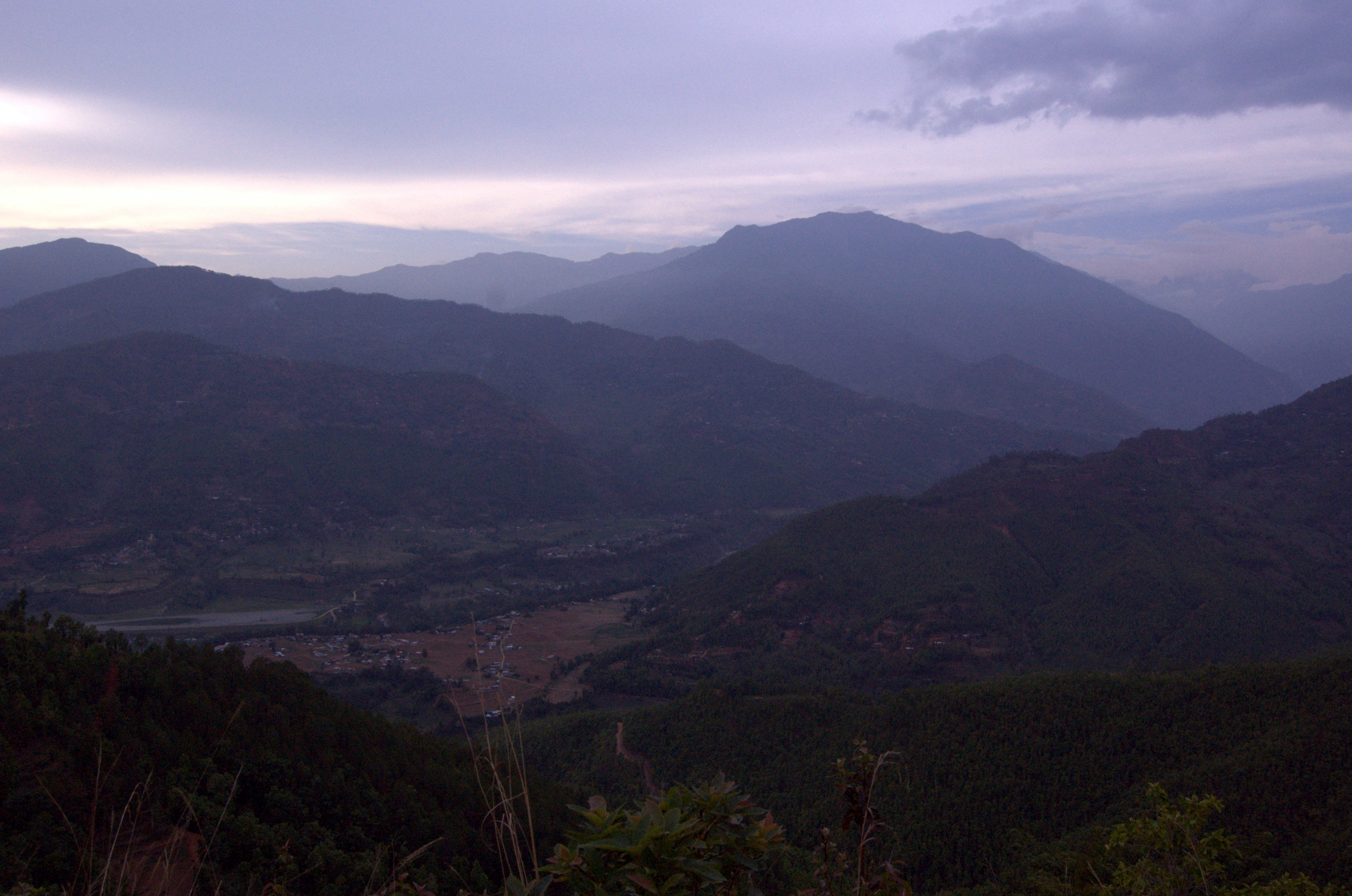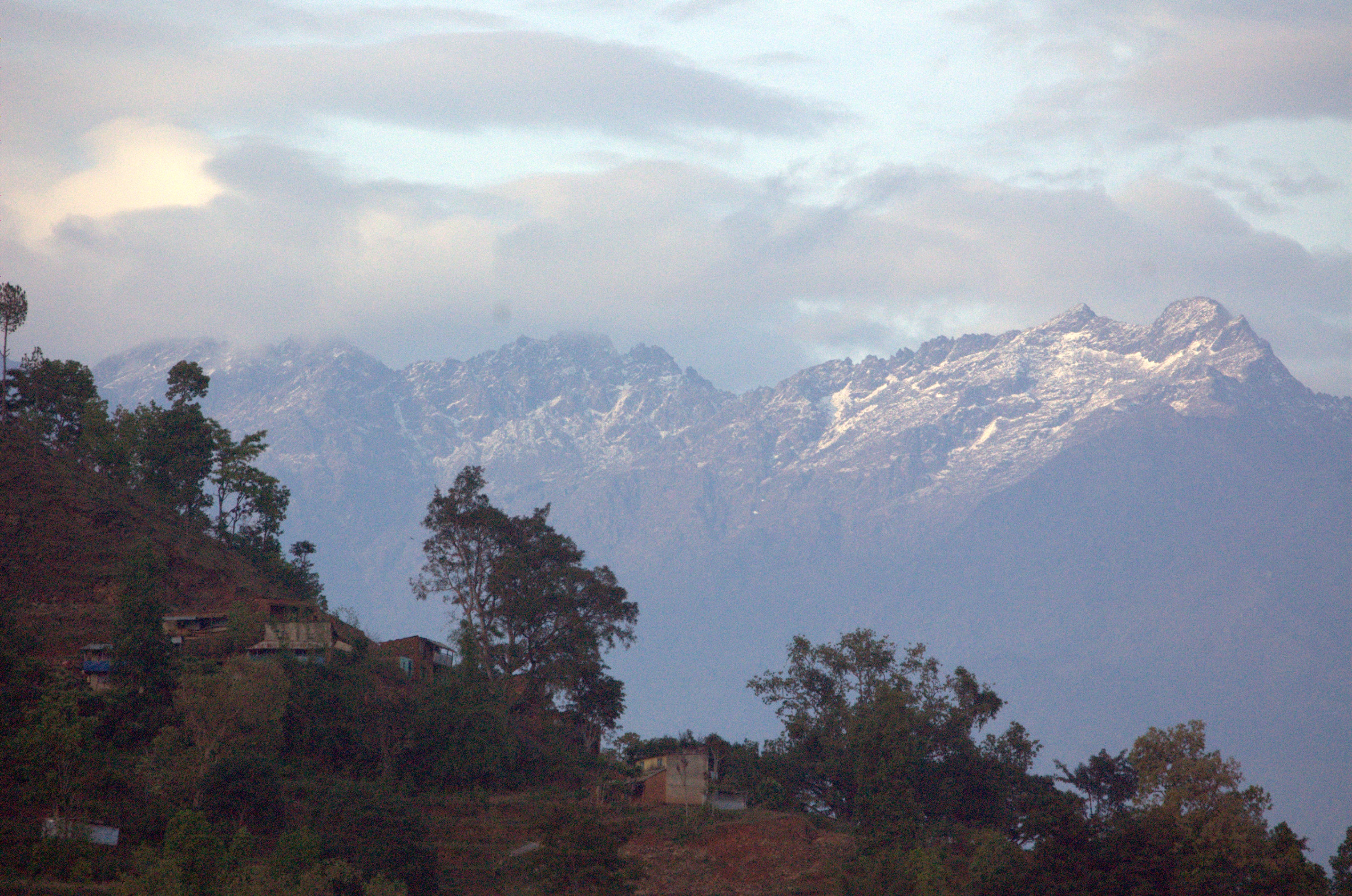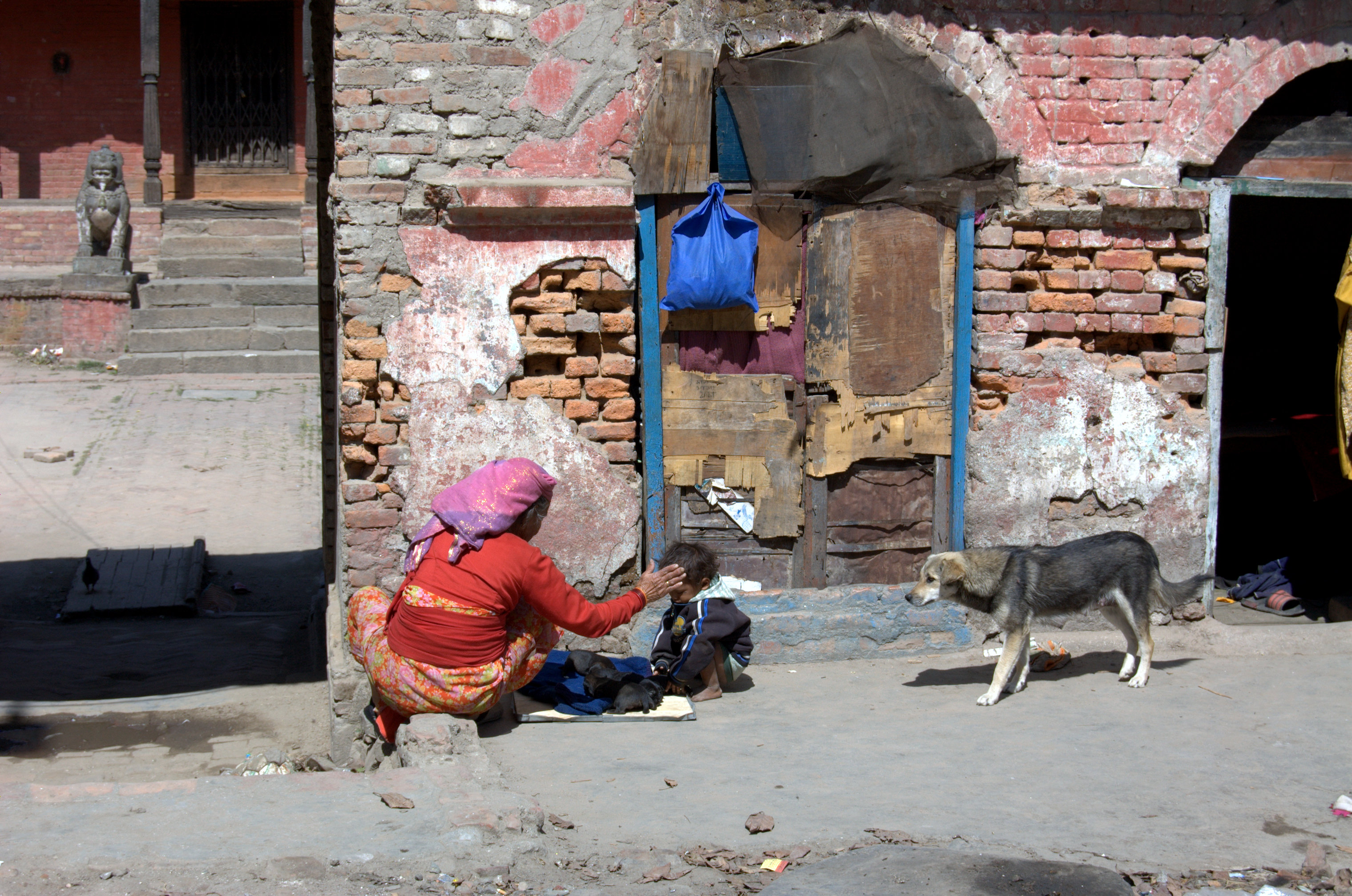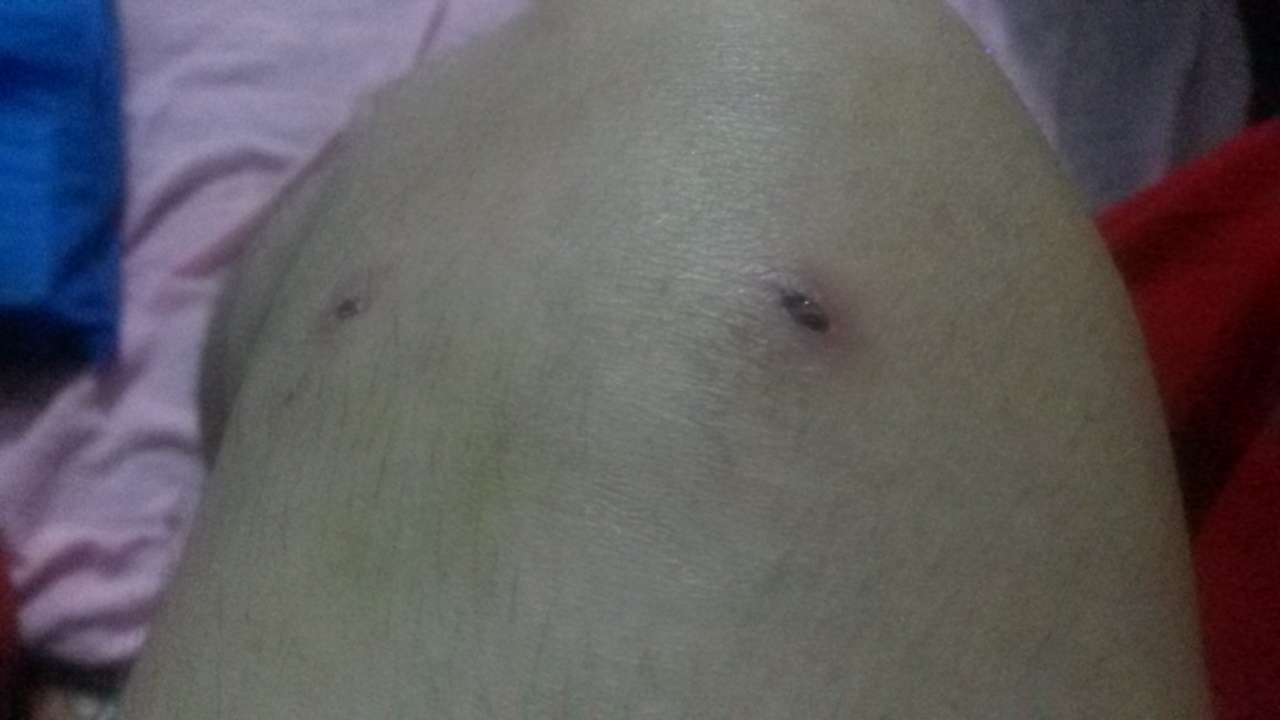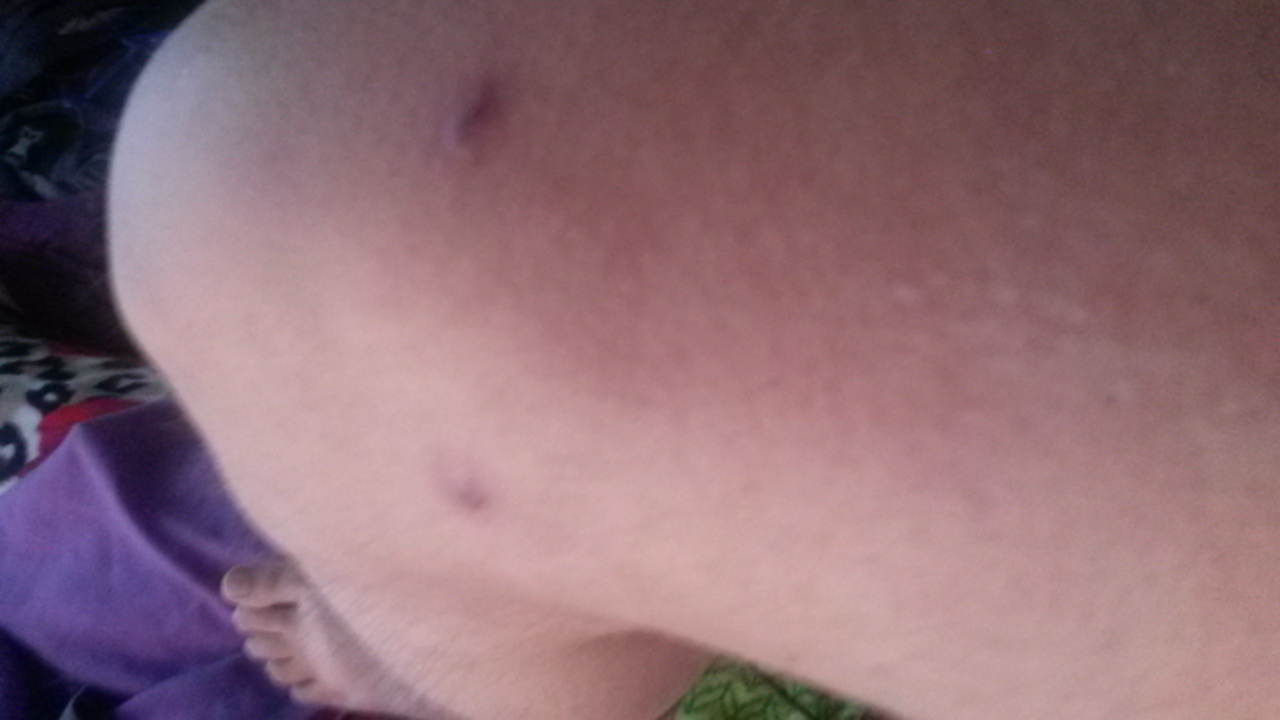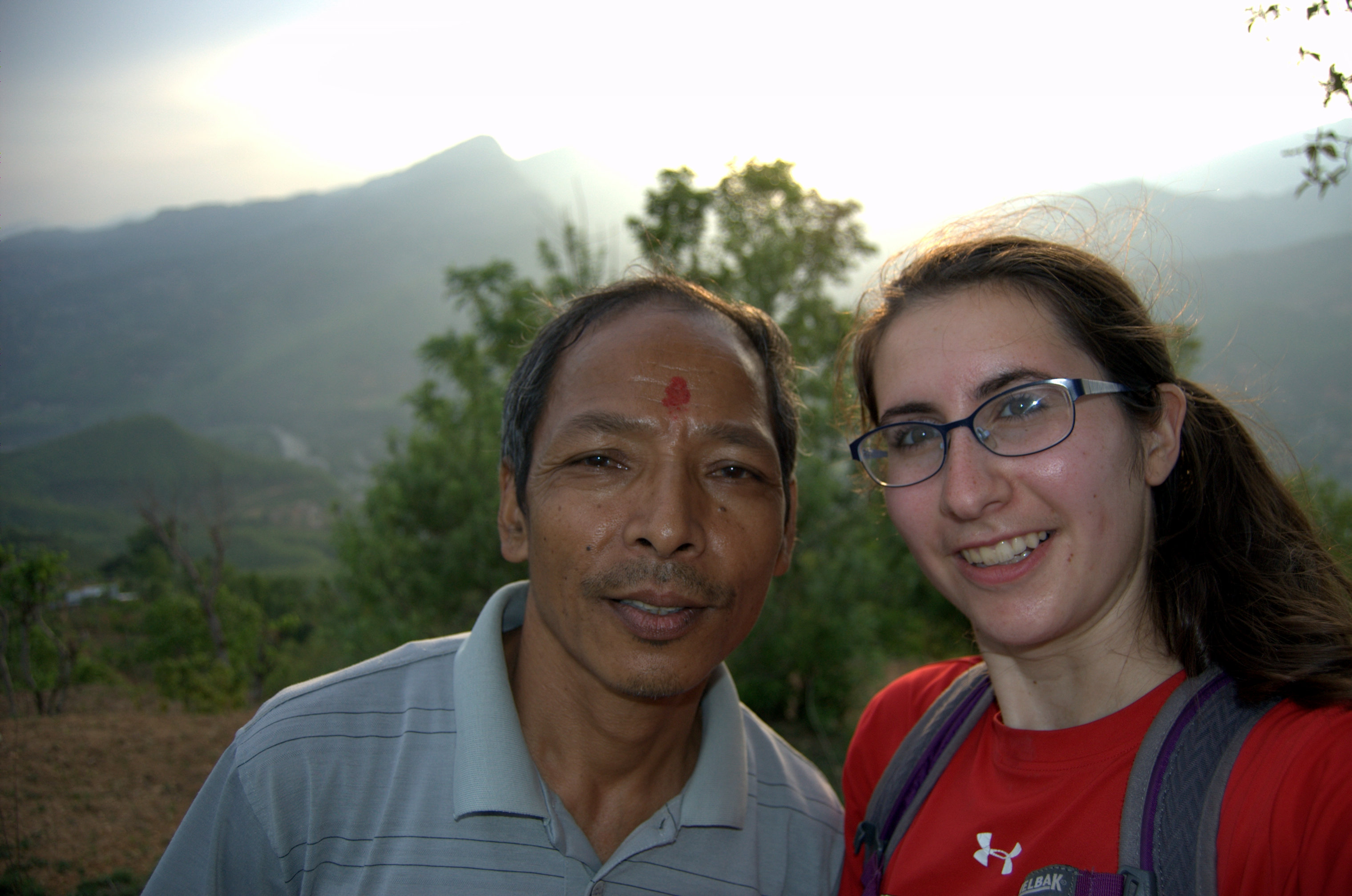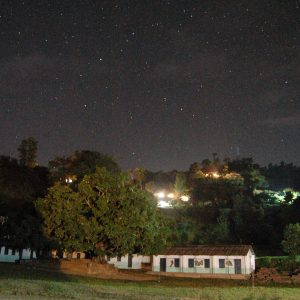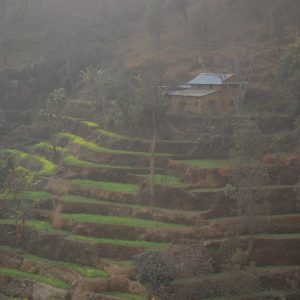My second day in the village, I decided to go for a hike up to the next hill. The Himalayas were very clear that day, and I was eager to view them from a different perspective. I laced up my hiking boots and walked for around an hour until I reached the next peak over from my village. I enjoyed the view of the mountains, but actually found the view to be better from my own home.
Here are some pictures from the hike:
On the way back down the mountain, I saw a 12 foot snake on the path ahead of me. Its width was approximately the circumference of my head. I had never seen a snake that big. I was a little nervous, especially because one of the other Fulbright Scholars here is doing research on snake bites and how better medical infrastructure is needed to respond to common and often-fatal snake bites. I waited until it had slithered away before continuing. As I watched it move, I thought to myself, “I’d rather be bitten by anything but that.”
No sooner did I think that did a medium-sized dog appear, barking madly. Perhaps it had also seen the snake and was startled, thinking I was in control of the beast Tom Riddle style (I hope you get that reference).The barking was intense enough that I knew the situation was very bad. I backed away slowly, but as I did, I fell. While I was lying on the ground, the dog ran up and aggressively bit me just above the knee.
I started screaming, and dog’s owners ran over to help. Their young son tied a rope around the dog’s neck and chained it up and the mother threw large stones at it. I didn’t want them to hurt the dog, and I made that clear. The son helped me clean out the wound, but because of the drought in the village, we only had the liter of water I had packed for my hike to do so (after a dog bite, the wound should be cleaned for 10-15 minutes; it is one of the most important ways to prevent rabies). They tried to get me to sit down, but I kept telling them I needed to get to the hospital. As a side note, I finally got to use my favorite Nepali word jay-rue-ree, which means urgently). The scariest moment for me was when I looked down and saw my entire leg drenched in blood and a puddle underneath me. I hadn’t realized I was bleeding that profusely.
The family still wouldn’t let me go. At first, they were waiting for the patriarch to come back from the field where he was working. The women didn’t want to do anything without his consent. The family felt terrible, and they wanted to make me tea (that’s the only proper way to greet guests in this culture). I promised to return for tea and a meal soon, but that still wasn’t good enough. I had to call my Fulbright staff lead to have her talk the family into helping me leave immediately (I needed assistance walking at that point, so I couldn’t leave by myself).
Word travels very quickly, and by the time I left the family’s house 10 minutes after the incident, a call had a been made to the only person in the region with a motorcycle, who started the multi-hour journey to my village. When he arrived, he introduced himself as a government official in a distant city, and then I got on the back of this complete stranger’s bike for the long journey to the regional hospital. (The medical treatment deserves it’s own post, so you can look forward to those upcoming posts). Afterwards, he took me to his house (around an hour past the hospital), where his wife had prepared a multi-course meal for me. I really enjoyed sitting with my new friends, eating their delicious food, and just talking. They, like most people, were very curious about life in America. The wife in particular loved my description of a dishwasher. After dinner, the husband gave me a ride back up the mountain to my village. I tried to insist on paying for his gas (this complete stranger had taken a day off of work to drive me many miles), but he refused. Most days here, I look around and am completely in awe of the level of generosity the community displays for each other. Seriously, can you imagine taking a day off of work to transport a complete stranger all day long?
In terms of the actual attack, I can assure you I certainly did not knowingly provoke the dog. From the time I first saw the dog to the time I was bitten was around 5 seconds. Around half the village believe it was due to the dog having never seen someone who looks like I do (as in have pale skin), the others just use it as justification for why women should never walk alone. In my opinion, the dog was probably going to bite me anyway because there aren’t a lot of visitors on that particular path, and when I fell it just frightened the dog even more.
A few days ago, I went on the same hike with a new village friend of mine, a retired government official whose company I really enjoy. Before we left, I warned him that I would use him as a human shield if it came to that (only joking a little bit- every person for themselves in the mountains). There were four dogs halfway up the hike that were barking aggressively. They probably would’ve attacked me if I was alone, but my friend raised his hands up high and made big aggressive noises back at them, that subdued them. My contribution was that I carried a large rock in self-defense. At one point, when it seemed like they were closing in, I contemplated jumping off the side of the mountain (I figured I would just roll down safely). My friend frowned and said he’d never seen the dogs act that way, and that he thought it was because they had never seen a human look like me. He does the hike every day, but I’m not sure I believe the dogs are really that scared by a different level of melanin in a human being’s skin.
I also want to talk about dogs in general. As I alluded to earlier, the treatment of dogs is very different here than in America. Dogs are viewed as the same level of any other animal, and are often hit and grabbed by their tails in order to control them. The night after the dog attack, I was out in the village and a dog approached. The villagers did not want a dog near me, and so hit the dog repeatedly to try to make it go away from me. The dog just seemed confused as to why it was being hit.
Dogs are generally not taken care of in the we think about it. My family had two dogs, but one disappeared/was killed and the other one is only theirs in the sense that it lives in the path outside of their house and protects its access to scraps by chasing away all other dogs. They are not fed or cared for in the way we care for our pets (as I write this, I just watch. They view dogs as just another animal roaming around in the jungle. I think it’s important to remember that there are many instances where we routinely treat animals in a way that would be shocking here (many things that go on in factory farms, for example).
I will end with good news: the dog was still alive 10 days after I was bit, which means it didn’t have rabies!
